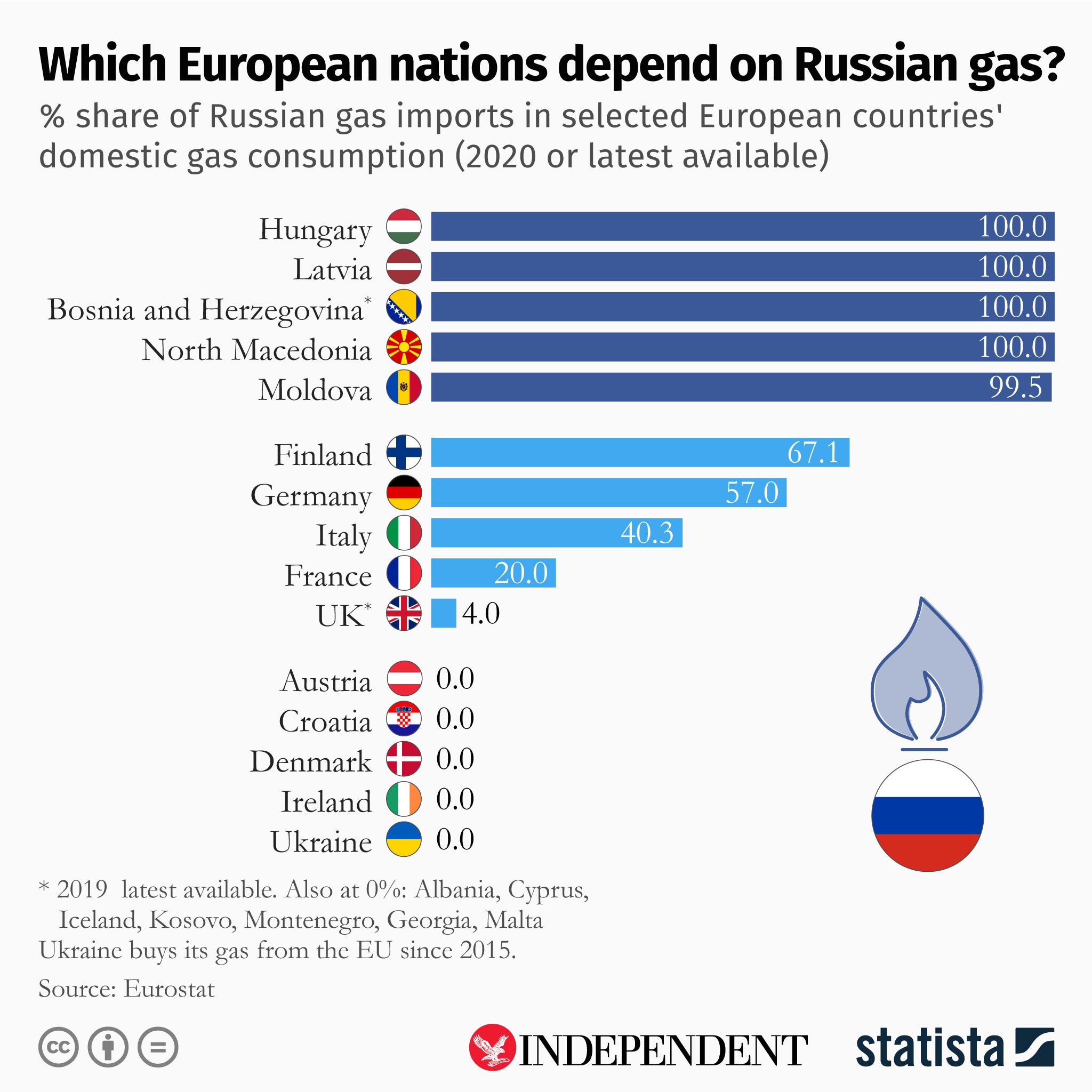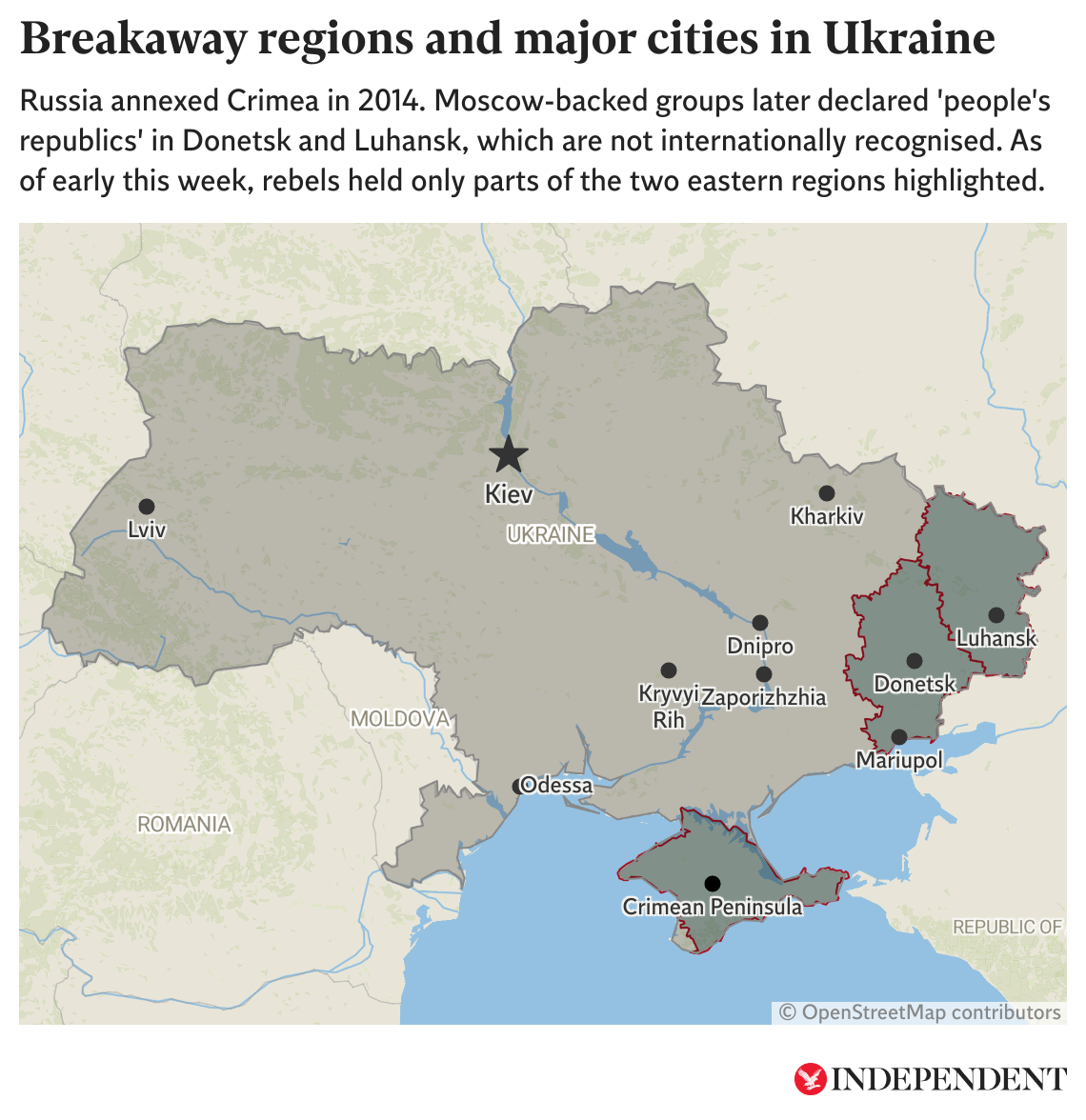Britain at loggerheads with EU allies over move to cut Russia from Swift banking system
Putin adversary urges Boris Johnson to go further in targeting Kremlin-linked elite
Your support helps us to tell the story
From reproductive rights to climate change to Big Tech, The Independent is on the ground when the story is developing. Whether it's investigating the financials of Elon Musk's pro-Trump PAC or producing our latest documentary, 'The A Word', which shines a light on the American women fighting for reproductive rights, we know how important it is to parse out the facts from the messaging.
At such a critical moment in US history, we need reporters on the ground. Your donation allows us to keep sending journalists to speak to both sides of the story.
The Independent is trusted by Americans across the entire political spectrum. And unlike many other quality news outlets, we choose not to lock Americans out of our reporting and analysis with paywalls. We believe quality journalism should be available to everyone, paid for by those who can afford it.
Your support makes all the difference.Boris Johnson is at loggerheads with European allies over a key measure to lock Russia out of the international banking system in a potentially crippling response to Vladimir Putin’s invasion of Ukraine.
Exclusion from the Swift money transfer facility was included by the UK as an aspiration in what the prime minister described as “the largest and most severe package of economic sanctions that Russia has ever seen”.
But despite Mr Johnson’s efforts to persuade German chancellor Olaf Scholz in a phone call that the consequences of western under-reaction would be “unthinkable”, the EU looked set to block the move following opposition from Berlin and Rome.
A leading advocate of sanctions against Mr Putin, Bill Browder, told The Independent that the denial of access to Swift would be “the one thing that would really change Putin’s calculus”, making it impossible for financial institutions to send money in and out of Russia and dealing a severe blow to its oil and gas earnings.
And Ukraine’s foreign minister, Dmytro Kuleba, warned that anyone preventing Russia’s exclusion from Swift would have “the blood of innocent Ukrainian men, women and children ... on their hands”.
Mr Browder, the financier behind the Magnitsky Act, which allows measures to be taken against Russian human rights abusers, welcomed the prime minister’s announcement of sanctions on five super-wealthy Putin associates as well as key defence sector companies.
But he said the measures did not go far enough, telling The Independent: “He’s now started firing bullets, but the question is which ones hit the target?
“I would argue the best target is to go after the 50 or so oligarchs who look after Putin’s money in the UK. And the list I saw only included a few oligarchs.
“From my perspective, that misses the target completely – that’s what Putin cares about most.”
Setting out the UK’s sanctions package in a statement to parliament on Thursday, Mr Johnson vowed to “hobble” the Russian economy in the wake of Mr Putin’s unprovoked aggression against its eastern European neighbour.
He announced the freezing of the assets of major Russian banks – including VTB, the country’s second-largest bank, with assets totalling £154bn and 95,000 employees – and said that he would ban Russian airline Aeroflot from landing planes in the UK.
On the expanded list of sanctioned entities are five major companies in the Russian defence sector – including the country’s largest defence company, Rostec, which employs more than 2 million people and exports £10bn of weapons a year – as well as more than 70 of their subsidiaries.
All will have their assets frozen, and UK-based companies and individuals will be barred from taking part in transactions with them.
Targeted for similar measures, along with UK travel bans, were Russia’s youngest billionaire Kirill Shamalov, who was previously married to Mr Putin’s daughter; PS Bank chief Petr Fradkov; VTB Bank deputy president Denis Bortnikov; defence company director Yuri Slyusar; and Novicom Bank chair Elena Georgieva.

A UK diplomatic source said: “These are people who have international lifestyles – they come to Harrods to shop, they stay in our best hotels when they like, they send their children to our best public schools.
“That is what’s being stopped, so that these people are essentially persona non grata in every major western European capital in the world. That really bites.”
Including subsidiaries of the five defence companies, new sanctions were placed on a total of 120 individuals and entities. Further lists of targets have already been drawn up, allowing the UK to ratchet up pressure on Moscow as the crisis develops.
British sources said further sanctions would not be tied to specific Russian escalations, but would be successively introduced as appropriate.
Mr Johnson promised to bring forward elements of his Economic Crime Bill to clamp down on illicit finance in London, and promised a new “kleptocracy cell” in the National Crime Agency so that “oligarchs in London will have nowhere to hide”.

Legislation will be introduced and brought into effect on Tuesday, which will prohibit all major Russian companies from raising finance through UK markets, and will also bar the Russian state from raising sovereign debt in Britain.
All exports of dual-use technology are immediately banned, and legislation will be rushed through to prohibit sales of hi-tech items and supplies for extractive industries. A limit will be set on the size of deposits that any Russian national can hold in a UK bank, though the threshold, and the date from which it will be applied, are yet to be decided.
The package of sanctions has been drawn up over a matter of months by a team of officials that trebled in size as the Ukraine crisis developed.
Detailed cases for action have been drawn up for each individual and business, with the aim of making the justification for sanctions legally watertight in the case of a court challenge by the notoriously litigious oligarchs.
Labour leader Sir Keir Starmer said the UK should brace itself for the “economic pain” which he said was a “sacrifice to defend democracy” as oil prices soar and Russian money is flushed out of banks. Sir Keir said Labour would support further sanctions against the regime to see “its ability to function crippled”.
After addressing parliament, Mr Johnson received his second briefing of the day from military and intelligence chiefs in the government’s Cobra emergencies committee, before chairing a late-evening meeting of the cabinet.
The Ukrainian flag was flown over government buildings and 10 Downing Street was lit up in yellow and blue.
The Foreign Office said that foreign secretary Liz Truss would shortly embark on a round of shuttle diplomacy in the US and Europe “to galvanise a swift, determined and decisive international response”.
Ms Truss said: “Russia is now an international pariah on the world stage. We will squeeze Putin’s regime and all those close to him responsible for its appalling attack on Ukraine.
“We will not rest until Russia’s economy has been degraded and Ukraine’s sovereignty and territorial integrity restored.”

Join our commenting forum
Join thought-provoking conversations, follow other Independent readers and see their replies
Comments